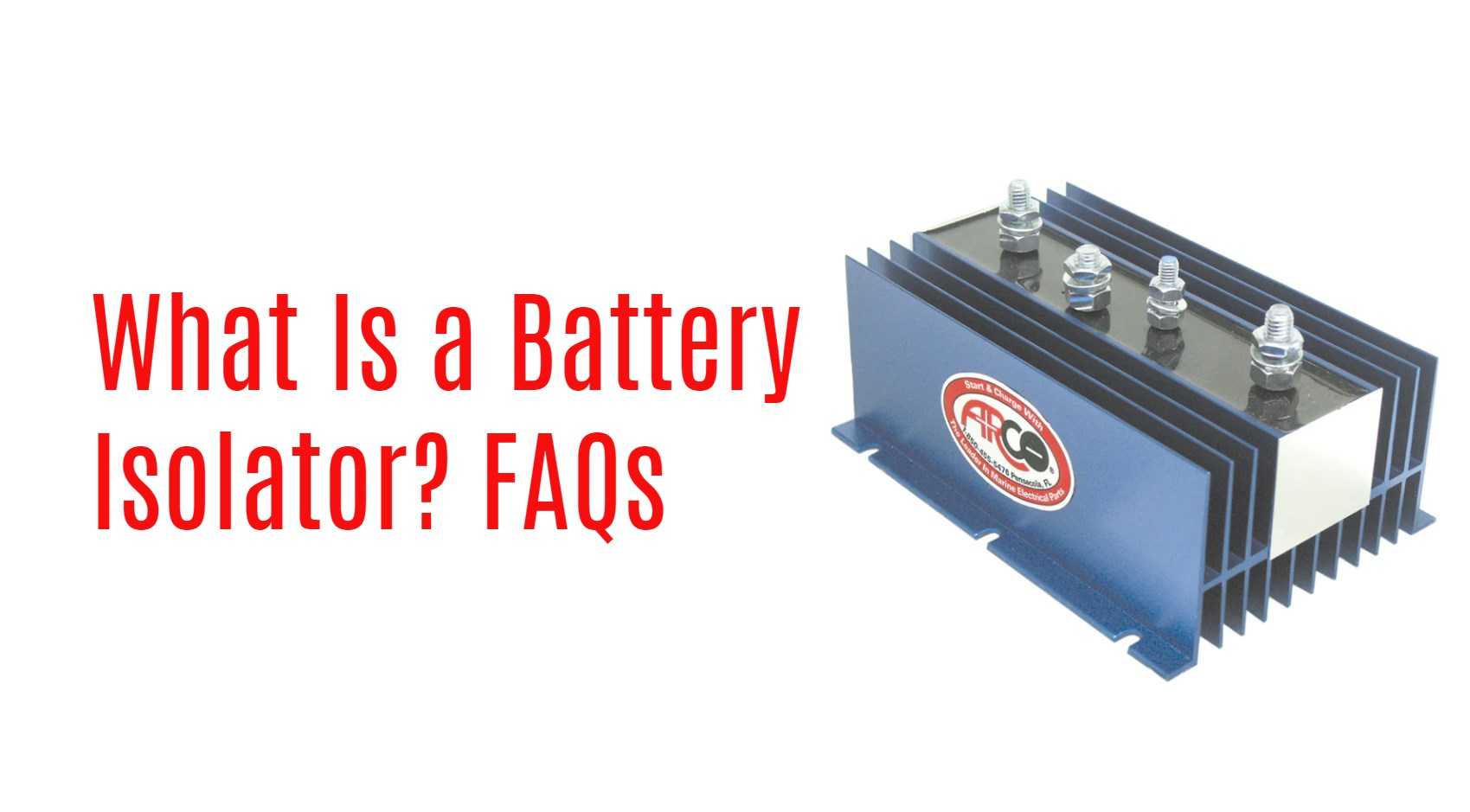A battery isolator is an essential electrical device designed to manage multiple batteries within a system, ensuring that each battery can charge and discharge independently without depleting one another. This functionality is particularly crucial in applications such as recreational vehicles (RVs), boats, and vehicles with auxiliary power needs.
What Is a Battery Isolator?
A battery isolator allows for the simultaneous charging of multiple batteries from a single power source, such as an alternator, while preventing the batteries from discharging into one another. This separation is vital for maintaining the charge of the starting battery, especially when auxiliary batteries are used for powering additional devices like lights, sound systems, or navigational equipment.
How Does a Battery Isolator Work?
Battery isolators can be based on different technologies:
- Diode-Based Isolators: Use semiconductor diodes to allow current to flow in one direction only, preventing backflow between batteries. However, they introduce a voltage drop that can affect charging efficiency.
- Relay-Based Isolators: Utilize solenoids or electromechanical relays to connect or disconnect batteries based on voltage levels. When the engine is running, the relay connects both batteries for charging; when off, it isolates them.
- Smart Isolators: These devices monitor battery voltages and intelligently manage the connection and disconnection of batteries to optimize charging and discharging cycles.
Advantages of Using a Battery Isolator
- Prevents Over-Discharge: Ensures that the starting battery retains enough charge to start the engine, even if auxiliary devices drain the secondary battery.
- Extends Battery Life: By managing charge cycles effectively, isolators help prolong the lifespan of all batteries in the system.
- Enhances Safety: Reduces the risk of electrical failures by preventing unintended discharges between batteries.
Common Uses of Battery Isolators
Battery isolators are widely used in various applications:
- Recreational Vehicles (RVs): To separate house batteries from starting batteries while allowing both to charge from the vehicle’s alternator.
- Marine Applications: To ensure that essential systems remain powered without draining the starting battery.
- Utility Vehicles: In vehicles with high current loads, isolators help manage multiple battery banks effectively.
Battery Isolator FAQs
1. Can I use a battery isolator with different types of batteries?
Yes, but it’s essential to ensure compatibility. Mixing battery types (e.g., lead-acid with lithium) can lead to performance issues. Always consult manufacturer guidelines.
2. How do I know which type of battery isolator to choose?
The choice depends on your specific needs. Diode-based isolators are simpler but less efficient; relay-based models offer better performance but may require more complex installation.
3. Will using a battery isolator affect my charging speed?
Yes, especially with diode-based isolators due to voltage drop. Relay-based and smart isolators typically provide better charging efficiency.
4. Can I install a battery isolator myself?
Installation is possible for those with basic electrical knowledge, but it’s recommended to consult a professional for optimal performance and safety.
5. How do I maintain my battery isolator?
Regularly check connections for corrosion or wear and ensure that all components are functioning correctly. Periodic inspections can help prevent issues.
Latest News in Battery Technology
- Recent advancements in smart battery management systems are enhancing the efficiency of battery isolators by providing real-time monitoring and control.
- Manufacturers are focusing on developing more compact and efficient isolators that reduce installation complexity while improving performance.
- The growing popularity of electric vehicles is driving innovation in multi-battery systems, leading to increased demand for reliable battery isolators.
Redway Expert Comment
In our experience at Redway Battery, understanding how battery isolators function is crucial for anyone managing multiple battery systems. They not only enhance safety but also improve overall system efficiency by ensuring that each battery operates optimally without draining one another. Choosing the right type of isolator based on your specific application can significantly impact performance.” In conclusion, a battery isolator is an invaluable component in managing multi-battery systems, providing safety and efficiency in various applications. By understanding their functionality and benefits, users can make informed decisions about their energy management needs.




